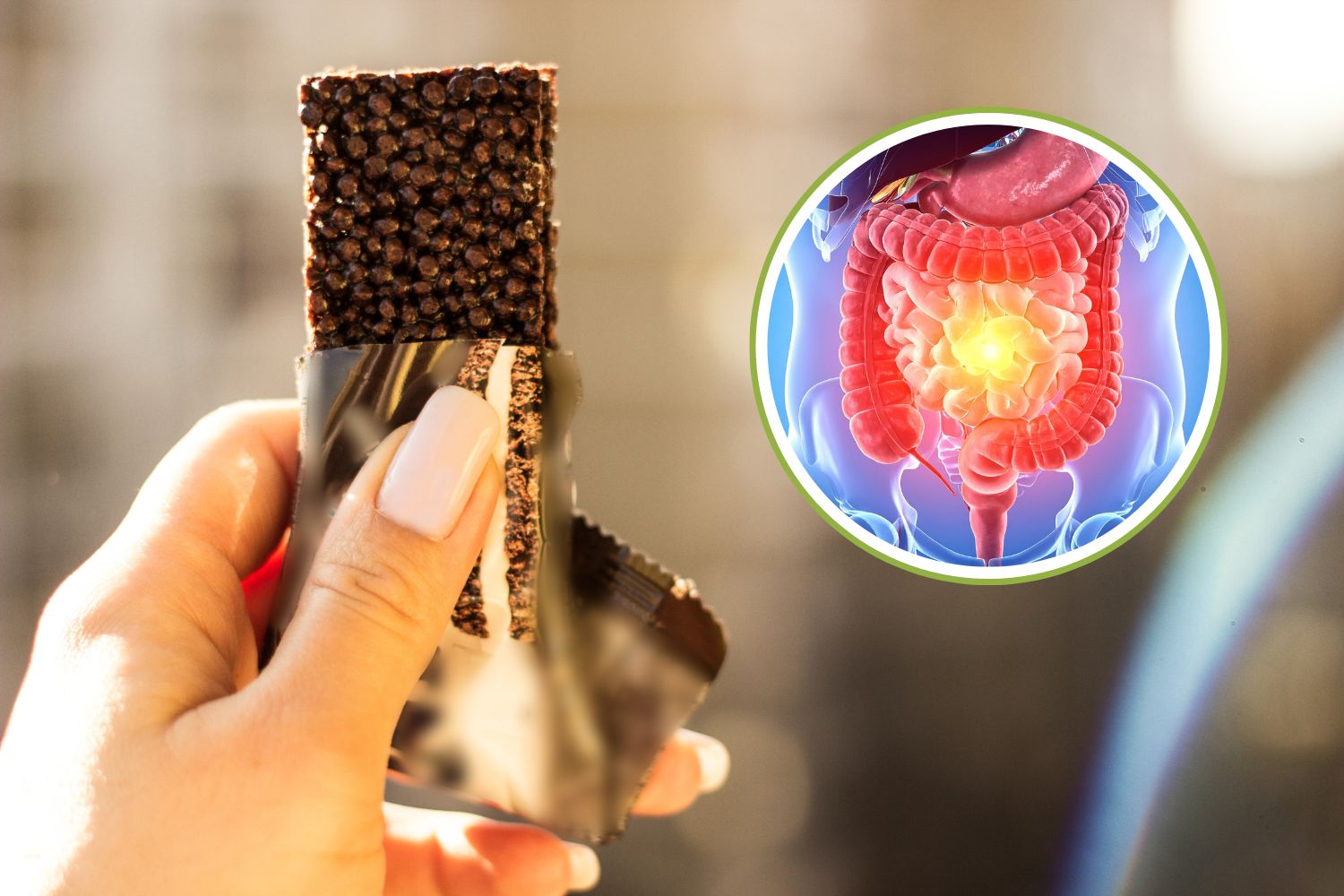Joe Wicks' new documentary shines a spotlight on industrial protein bars, often loaded with additives and sweeteners. But what consequences can they have on gut, heart, and metabolism if consumed regularly?

Table of contents
In the documentary Licensed to Kill, Joe Wicks, alongside physician and science communicator Chris van Tulleken, revealed how many industrial protein bars are far removed from any notion of natural nutrition.
Additives, sweeteners, emulsifiers, and refined oils: ingredients that transform a supposedly healthy snack into an ultra-processed product, similar to a convenience store candy bar.
The point isn’t to demonize the concept of “protein bars,” but to understand what we’re actually eating. And more importantly: what effect does it have on our body if we consume it every day?
Gut: when the “fitness bar” becomes an endurance test
Many bars contain isolated fibers (like inulin) and sugar alcohols (like maltitol or sorbitol) that can ferment in the gut and cause bloating, gas, and cramping.
Synthetic emulsifiers, used to give the product consistency, can also alter the balance of the gut microbiota. Some animal studies link them to increased intestinal permeability, though human data remains preliminary.
My new documentary 📺 Joe Wicks: Licensed to Kill airs on @channel4 Monday 6th October at 8pm. It’s exploring Ultra Processed Foods and the impact they are having on our health. I’ve stepped out of my comfort zone to create something I think is really important and I hope you get to see it 😀 Will you tune in?@channel4documentaries
Posted by The Body Coach on Thursday, September 25, 2025
Even the declared protein content isn’t always what’s actually absorbed: according to a study published in Health.com, the body utilizes only between 47% and 81% of the protein listed on the label, because fibers, fats, and additives hinder digestion.
The “clean” alternatives – bars based on oats, nuts, or dates – remain the most tolerable. Especially homemade ones.
Heart: hidden sugars and invisible fats
Many “fit” products contain saturated fats and added sugars that, when consumed regularly, can increase cholesterol and blood sugar levels.
It’s not just about calories, but about ingredient quality. Ultra-processed foods are now associated – albeit only correlationally for now – with a higher risk of cardiovascular and metabolic diseases.
And there’s no shortage of contamination cases: in 2024, some No Cow brand bars were recalled in the USA for traces of lead and PFAS, the so-called “forever chemicals” linked to kidney and heart damage.
Waistline and metabolism: the study that changes perspective
Until recently, it was thought that protein bars, thanks to their protein content, could promote satiety.
But a clinical study published in 2023 in the Journal of Functional Foods (Pang et al.) showed a surprising result: after just one week of daily consumption, participants recorded an average 3% increase in fat mass.
In detail:
- subjects who ate one bar per day, with or without added fiber, consumed between 7% and 13% more calories than during the control week;
- satiety levels didn’t change significantly;
- caloric compensation was minimal (only 20% of excess calories were spontaneously “recovered”).
Translation: those who add a bar to their diet tend to add calories, not substitute them. And this, over time, can promote a slow increase in weight and fat mass, if not balanced by physical activity or a controlled diet.
How to choose (and use) protein bars without being fooled
- Read the ingredient list: if it’s long and full of chemical terms, better leave it on the shelf.
- Avoid artificial sweeteners and polyols, often the cause of bloating and intestinal disturbances.
- Prefer bars with “pantry” ingredients: oats, nuts, honey, dates, pure cocoa.
- Check sugars and fats: ideally under 0.35 oz (10 g) per serving.
- Use them as an occasional substitute, not as a regular snack.
Protein bars aren’t poison, but they’re not a “magic” food either. They can help those who exercise or need a quick protein boost, but if they become a daily habit they can alter metabolism and increase fat mass, as confirmed by the Pang and colleagues study.
Joe Wicks’ message is clear: the “protein” label alone doesn’t define a healthy food. True wellness still comes from what we cook, chew, and choose consciously.
Source: Journal of Functional Foods
